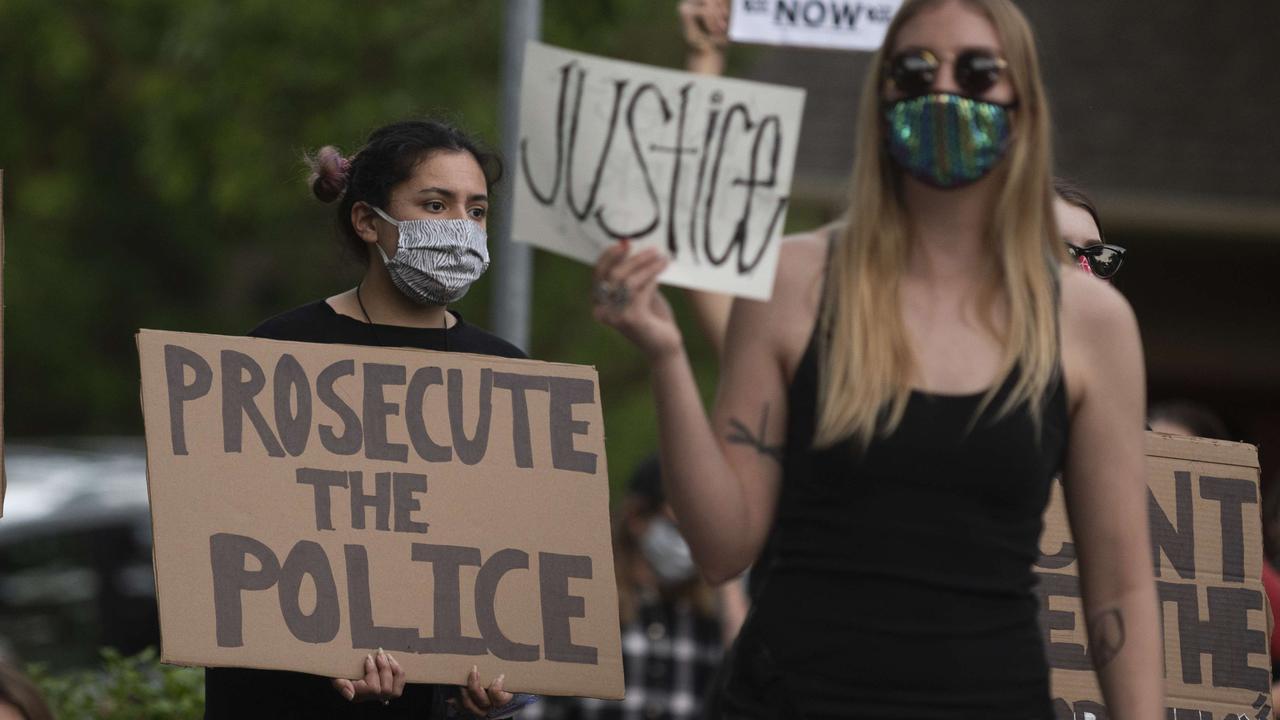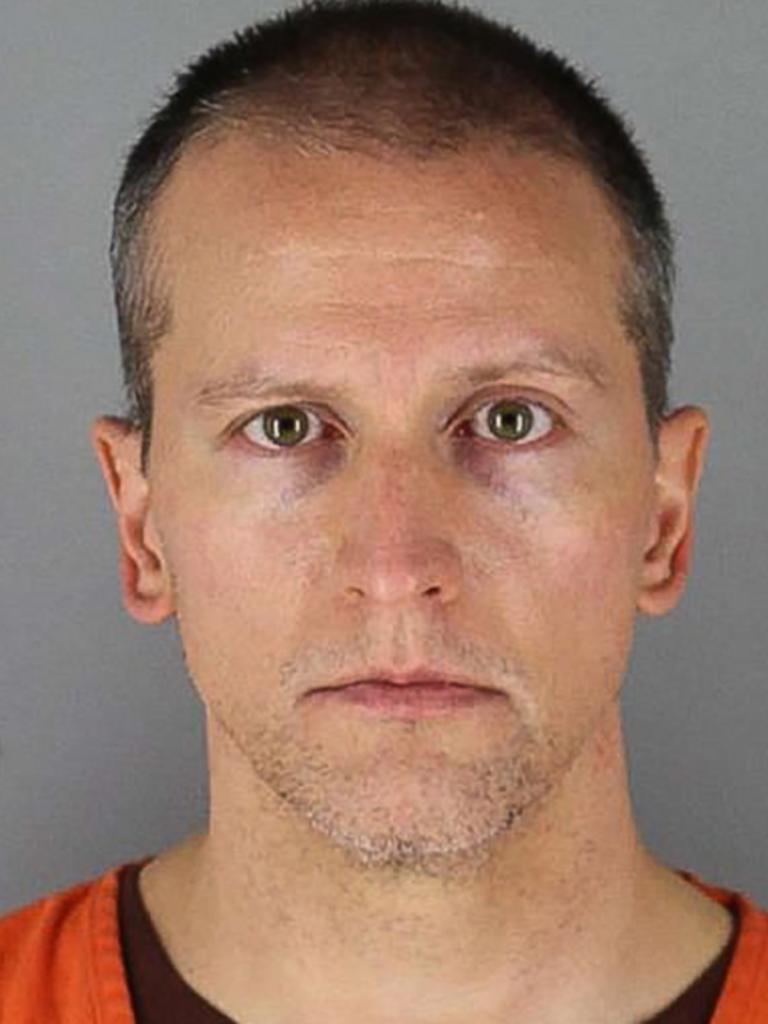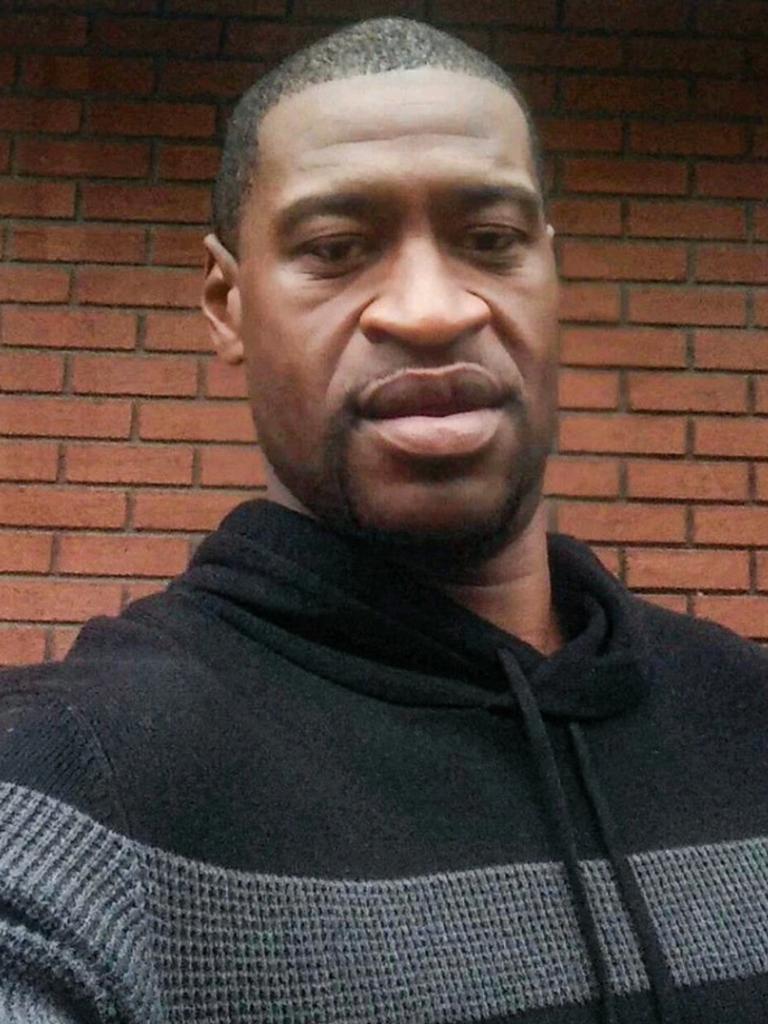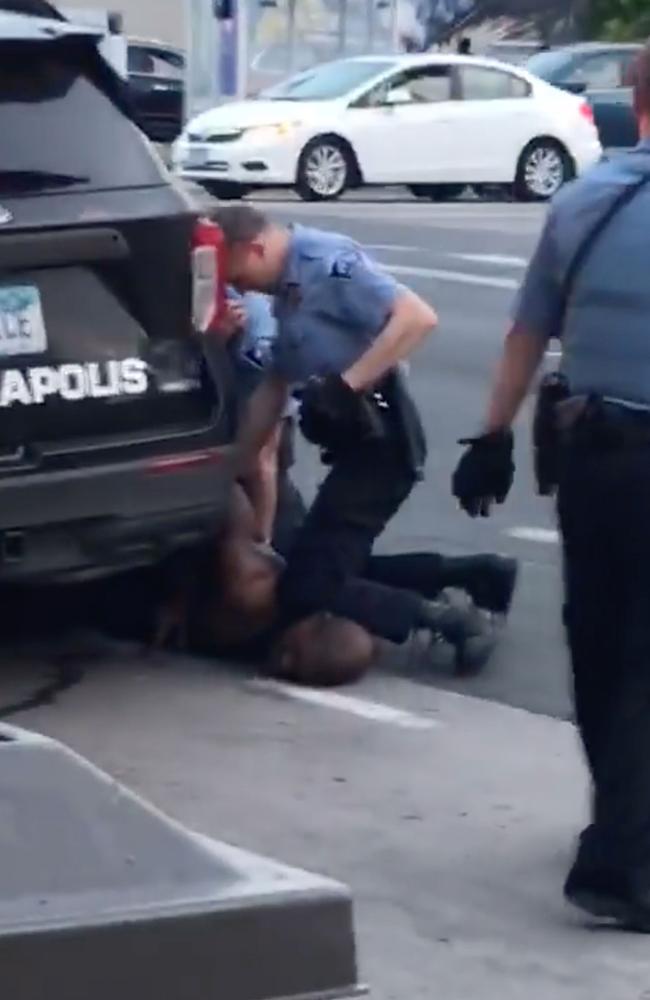Justine Damond’s family say police in Minneapolis didn’t make ‘adequate changes’
The family of Sydney woman Justine Damond, who was murdered by a Minneapolis cop, says George Floyd’s death shows police didn’t learn.
Third-degree murder and second-degree manslaughter.
Two charges in Minneapolis that many Australians became aware of after the shooting death of unarmed Sydney woman Justine Ruszczyk Damond, in her pyjamas in a back alley, at the hands of a police officer in 2017.
Last week, African-American man George Floyd was stopped by four Minneapolis Police officers and restrained under Derek Chauvin’s knee for almost nine minutes before he died.
Now Chauvin is facing the exact same charges laid against Justine’s jailed killer and a former officer of his department, Mohamed Noor.
Noor was the first on-duty police officer to be convicted of murder in the state of Minnesota.
RELATED: Cop’s gesture at White House protest

AUTHORITIES CITE DAMOND CASE
Hennepin County Attorney Mike Freeman made the link between the two cases at a press conference last week, after “sufficient admissible evidence to prove a case beyond reasonable doubt” was gathered against Chauvin over four days.
This included witness statements, footage from the officers’ bodyworn cameras, and the “horrible, horrific, terrible thing that we’ve all seen over and over again” being a citizen’s video of Floyd becoming unresponsive under the policeman’s knee.
“The Hennepin County Attorney’s Office is one of the few prosecuting offices in this country in the last five years to successfully prosecute a police officer for murder and we did that on behalf of Justine Damond,” Mr Freeman said.
“That’s unusual. We know how to do this.”
The prosecutor said bringing charges in cases involving police officers normally take from nine months to one year.
“This is the same charges that we made when we charged former Minneapolis Police officer Mohamed Noor,” he said.
“The exact same third-degree (murder) charge and (second-degree) manslaughter charge.
“We have to charge these cases very carefully because we have a difficult burden of proof.
“We entrust our police officers to use certain amounts of force to do their job, to protect us. They commit a criminal act if they use this force unreasonably. We have to prove that beyond a reasonable doubt.”
Noor was also charged with second-degree murder but the jury acquitted him on that count.
Race also surrounded his case, with protesters holding placards reading “Black Muslim Immigrant Guilty”, “Wrong complexion for Blue Protection” and “Noor: Victim of Identity Politics”.

In the case of Chauvin, a white man, the third-degree murder charge alleges he caused Floyd’s death “by perpetrating an act eminently dangerous to others and evincing a depraved mind, without regard for human life”.
The second-degree manslaughter charge alleges he caused the death by “culpable negligence, creating an unreasonable risk and taking a chance of causing death or great bodily harm”.
They carry maximum penalties of 25 years in jail, and 10 years and/or $20,000, respectively.
The Associated Press reports judges have some discretion.
The guidelines allow a range of nearly 11 years to 15 years for third-degree murder and less than three-and-a-half years to nearly five years for manslaughter, but the system is designed to result in close to the recommended sentence most of the time.
The other three officers at Floyd’s arrest have also been fired. Mr Freeman said more charges were possible, but authorities “felt it appropriate to focus on the most dangerous perpetrator”.
Investigations continue regarding officers Tou Thao, J Alexander Kueng and Thomas K. Lane.


FAMILY OF COP SHOOTING VICTIM RESPONDS
Justine Ruszczyk’s family told the Australian Associated Press the 46-year-old father-of-two was yet another victim of police misconduct in the US who should still be alive today.
“Justine, my daughter, and Jason’s sister should not be dead,” John Ruszczyk said in a statement to AAP.
“George Floyd, a good man, should not be dead.
“We are deeply saddened by Mr Floyd’s death and greatly distressed by the manner in which he died.”
In 2017 Ms Ruszczyk, a 40-year-old Australian life coach and yoga instructor, called 911 when she heard a woman’s screams from an alley behind her house.
She was fatally shot in the stomach by Noor from his squad car after approaching barefoot in the darkness. He testified he feared he was being ambushed.

A year ago, the Ruszczyks made the long flight from Australia, sat in the front row of a downtown Minneapolis courtroom, and bravely sat through heart-wrenching testimony and horrific autopsy photos.
They watched as Noor was convicted by a jury of the same charges Chauvin faces: third-degree murder and second-degree manslaughter. Noor is serving a 12.5 year prison sentence.
The Ruszczyks also won $US20 million ($A30 million) after filing a civil lawsuit against the city of Minneapolis.
The family’s hope was Noor’s conviction and the hefty payout would end the US city’s horrific record of police brutality.
“The fact that another person has died at the hands of the Minneapolis police using excessive force shows that they have not made adequate changes to their practices and training as we had been told they would after Justine’s murder,” the Ruszczyks wrote.
“There is obviously much work to be done.”

CHARGES AGAINST CHAUVIN QUESTIONED
Most states classify murder in the first or second degree but Minnesota, along with Florida and Pennsylvania, allows prosecutors to consider the lesser charge of third-degree murder.
Under Minnesota law, third-degree murder is defined as causing death of a person “by perpetrating an act eminently dangerous to others and evincing a depraved mind”, without regard for life but without intent to kill.
Floyd’s family’s lawyer, Benjamin Crump, believes there’s enough evidence to show Chauvin’s actions were premeditated and for more serious murder charges to be filed.
He told CBS: “We don’t understand how that is not first-degree murder.”
There are seven different clauses for murder in the first degree in Minnesota including causing the death of a human being with premeditation and with intent to effect their death.
If convicted of first-degree murder, an offender “shall be sentenced to imprisonment for life”.

Mr Crump said they believe Chauvin “knew who George Floyd was” given the Conga Latin Bistro had advised he was their “off-duty police” in the time the security guard worked there.
In an opinion piece in The Boston Globe, criminal law practitioner Albert Gopins and legal scholar Laurence Tibe said they were both “baffled by what’s going on in this explosive case”.
“Perhaps the Hennepin County prosecutor has simply made a gross filing error,” they said of the two charges laid against Chauvin.
“No one remotely familiar with Minnesota law would regard either of those charges as the right ones to bring in this case – a case where, even if intent cannot be proven, a second-degree felony murder charge, punishable by 40 years in prison, is manifestly justified.
“Under a quirk in Minnesota law, second-degree murder can be charged where an assault – such as the first-degree assault evident from Chauvin’s placement of his knee on Floyd’s neck for nearly nine minutes – unintentionally results in death.”
They also questioned whether the murder charge against the former officer could be scrapped.
“Anyone steeped in Minnesota law would recognise that the third-degree murder charge would likely be summarily dismissed for the ironic reason that Chauvin clearly aimed his acts at Floyd,” they wrote.
“Such a miscarriage of justice would surely trigger still more chaos and violence from coast to coast as people across the political spectrum come to see American justice as unworthy of the name.”



